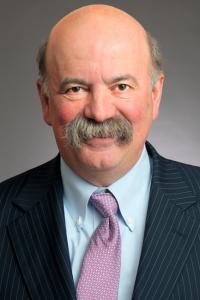Dr. Rosenwasser and Team Travel to Haiti on Medical Mission
Robert E. Carroll Professor of Hand Surgery and Director of the Trauma Training Center Melvin P. Rosenwasser, MD and a team of physicians, residents, and nurses traveled to Haiti for a weeklong medical mission to the Hôpital Adventiste d’Haiti in Port-au-Prince. This yearly mission began two weeks after the 2010 earthquake, when a team from Columbia Orthopedics traveled down to Haiti to treat the victims of that devastating disaster.
“We felt a great desire to help,” said Dr. Rosenwasser. “About two weeks after the earthquake, we made a trip to Santo Domingo, in the Dominican Republic, which shares the island with Haiti. We set up an initial base of operations there because they didn’t have sterile hospital facilities in Haiti to do surgeries. At the end of the trip, we went to Haiti with supplies and set up a base of operations that we’ve been going to every year since.”
This year, the team was comprised of three orthopedic surgeons, three orthopedic residents, one hand surgery fellow, two scrub nurses, and a research assistant. The Columbia Orthopedics team treated patients who are still impacted by the long-lasting ramifications from the quake and the critical orthopedic surgeon shortage there.
“The types of injuries we treat change from year to year, although we still see a few patients that were earthquake victims with deformities that needed correction,” said Dr. Rosenwasser. “So even after eight years, there are patients out there with untreated or partially treated injuries. On this last trip, we did 44 operations in one week. We saw trauma injuries — vehicular accidents, various birth injuries, cerebral palsy, vitamin and nutritional deficiency, and infections that are rampant that can change the way the skeleton grows in children and adults. And things you’d see here in the US like degenerative diseases.
Many of these conditions are quite advanced because of lack of expertise or training. So when we get there, we are dealing with things you wouldn’t routinely see in the United States because they are caught and treated earlier. Each time we go to Haiti, we’re also training their medical students and residents.”
Learn more about this trip in the latest NYP newsletter.

